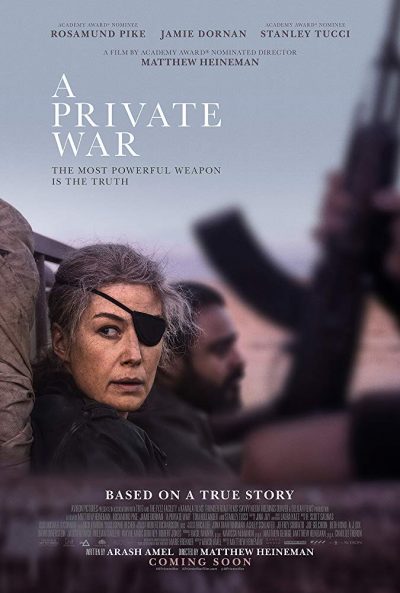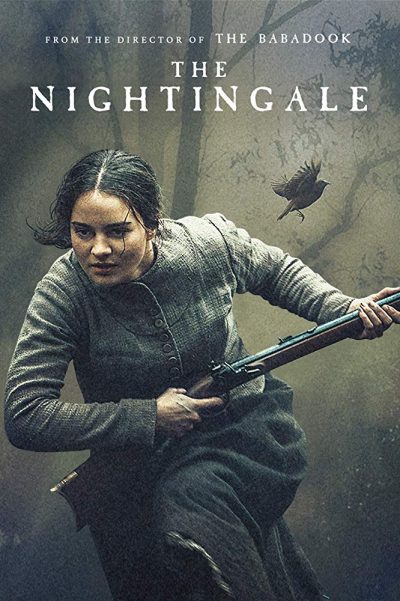★★★
“Certainly lives up to its title.”
 No-one does low-budget hyperviolence like the Japanese. Whether it’s pseudo-snuff like Guinea Pig: Flower of Flesh and Blood, or more fantastical entries such as Mutant Girls Squad, there have likely been more memorable entries from that country than any other. Note my use of the word “memorable”, as distinct from “good”, since they aren’t the same. I’d be hard pushed to recommend this to anyone, unless I knew they were predisposed to microbudget horror of a particularly savage type. I probably won’t ever watch it again. But I have to say this: I will remember it. As will Chris, who came in for the denouement, and was literally jaw-dropped by what she saw. I’m not going to spoil it, so apologies if some of what follows is a little vague.
No-one does low-budget hyperviolence like the Japanese. Whether it’s pseudo-snuff like Guinea Pig: Flower of Flesh and Blood, or more fantastical entries such as Mutant Girls Squad, there have likely been more memorable entries from that country than any other. Note my use of the word “memorable”, as distinct from “good”, since they aren’t the same. I’d be hard pushed to recommend this to anyone, unless I knew they were predisposed to microbudget horror of a particularly savage type. I probably won’t ever watch it again. But I have to say this: I will remember it. As will Chris, who came in for the denouement, and was literally jaw-dropped by what she saw. I’m not going to spoil it, so apologies if some of what follows is a little vague.
The film is divided into three sections, and after the first one, called “Man”, you’ll be wondering what the hell it’s doing here. For it is a look at the work of a male serial killer (Butch), who kidnaps and tortures women. That’s basically it, for twenty minutes, and the director believes in getting as up close and personal as possible here, with many of the shots being literally “in the face” of either perpetrator or victim. This certainly enhances the claustrophobic intensity, though I could have done without the shaky-cam attempt to establish its cinema verite credentials. “Do you understand what I’m doing?” he demands of his prisoners. Sadly, the correct answer of “No, because you’re a loony” is never given.
Things get more interesting and relevant in the second section, “Woman”, where the roles are reversed. An unnamed woman (Ayano) honey-traps men back to her room, where she kills them. She has a particular fondness for repeated and enthusiastic stabbings in the crotch, which had me shifting uncomfortably on my chair. She’s also rather more psychologically inclined, conversing with her victims, rather than interrogating them. Though eventually, she brings home someone (Nishina) who is aware of her murderous intentions, and is intent on stopping her. The result is a bloody battle – again, shot in close-up – which swings one way then the other, before our “heroine” [quotes rarely used more advisedly] eventually prevails.
This sets up the third and final act, probably inevitably titled “Man and Woman”, in which the two killers cross paths. She follows him to his flat, apparently aware of his tendencies – how is never made clear. Barely have they crossed the doorstep before battle is joined. And if you thought the previous fight was vicious… Hoo-boy. This ends in a double-whammy of revelations, which make sense in one way – they’re clearly perfect for each other – but count among the more batshit crazy things I’ve ever seen. And I’ve seen some things. While it is somewhat poignant, we know so little about any of the people involved (how could we learn much, given it’s barely an hour between opening and closing credits), the emotional impact is limited. Brutal though? Definitely.
Dir: Takashi Hirose
Star: Butch, Ayano, Takashi Nishina, Katrina Grey





 Poor teenage girl Mako (Ogura) is having a pretty crappy time of it. Her parents are feuding over money troubles, she’s getting bullied at school, and then, her father ends up arrested for fraud. But, just when things are their lowest, she gets a paper-cut. For reasons that are never
Poor teenage girl Mako (Ogura) is having a pretty crappy time of it. Her parents are feuding over money troubles, she’s getting bullied at school, and then, her father ends up arrested for fraud. But, just when things are their lowest, she gets a paper-cut. For reasons that are never 
 While ultimately hamstrung, not least by its limited resources – this cost a mere five thousand dollars – it does what low-budget films should generally tend to do. That is, go where their better-off siblings dare not tread. In this case, that’s the forbidden territory of religion. Two young, female missionaries, Amber (Durand) and Martha (Crosland) are going door-to-door, seeking souls they can save and bring into the body of their church – clearly Mormon, going by the reference to Salt Lake City among other things, though operating under a pseudonym here! While their attractive shape proves successful at getting them in the door, the residents who don’t live up to the ladies’ high moral standards are in for a shock. For the two kill non-believers, with Amber in particular, having a zero tolerance policy. And she considers herself “saved”, basically giving her a free pass to do anything necessary in the name of the Lord.
While ultimately hamstrung, not least by its limited resources – this cost a mere five thousand dollars – it does what low-budget films should generally tend to do. That is, go where their better-off siblings dare not tread. In this case, that’s the forbidden territory of religion. Two young, female missionaries, Amber (Durand) and Martha (Crosland) are going door-to-door, seeking souls they can save and bring into the body of their church – clearly Mormon, going by the reference to Salt Lake City among other things, though operating under a pseudonym here! While their attractive shape proves successful at getting them in the door, the residents who don’t live up to the ladies’ high moral standards are in for a shock. For the two kill non-believers, with Amber in particular, having a zero tolerance policy. And she considers herself “saved”, basically giving her a free pass to do anything necessary in the name of the Lord. For most films. I’ve usually got a fairly good idea of what is likely to be the final review grade, inside about 30 minutes. It may drift half a star up or down, but it’s relatively rare for there to be more variation than that. This would be one such case, which started off as underwhelming, went through a brief surge of “Oh, yeah – I get it!” in the middle, before returning to the mediocrity from whence it came. At various points, this could have been anywhere between ★½ and (although briefly) ★★★★. Well done, I guess?
For most films. I’ve usually got a fairly good idea of what is likely to be the final review grade, inside about 30 minutes. It may drift half a star up or down, but it’s relatively rare for there to be more variation than that. This would be one such case, which started off as underwhelming, went through a brief surge of “Oh, yeah – I get it!” in the middle, before returning to the mediocrity from whence it came. At various points, this could have been anywhere between ★½ and (although briefly) ★★★★. Well done, I guess? The profession of journalist is not exactly well-regarded by many people these days. So it’s nice occasionally to be reminded that they can still potentially be action heroes, risking their own lives in pursuit of the truth. In this case, it’s Marie Colvin (Pike), a foreign correspondent for London’s Sunday Times newspaper, who lost an eye while covering the civil strife in Sri Lanka, leading to a piratical eye-patch for the rest of her career. Most people would treat that as a sign from the universe to look into a change of profession. But Colvin was made of sterner stuff, despite a hellacious case of post-traumatic stress disorder, with which she largely coped by drinking heavily. So she and photographer sidekick Paul Conroy (Dornan) continue to venture into the world’s hot-spots, whether it’s Iraq, Libya or Syria. There, they expose the terrible human cost that the conflicts have on the local population, without apparent concern for their own safety.
The profession of journalist is not exactly well-regarded by many people these days. So it’s nice occasionally to be reminded that they can still potentially be action heroes, risking their own lives in pursuit of the truth. In this case, it’s Marie Colvin (Pike), a foreign correspondent for London’s Sunday Times newspaper, who lost an eye while covering the civil strife in Sri Lanka, leading to a piratical eye-patch for the rest of her career. Most people would treat that as a sign from the universe to look into a change of profession. But Colvin was made of sterner stuff, despite a hellacious case of post-traumatic stress disorder, with which she largely coped by drinking heavily. So she and photographer sidekick Paul Conroy (Dornan) continue to venture into the world’s hot-spots, whether it’s Iraq, Libya or Syria. There, they expose the terrible human cost that the conflicts have on the local population, without apparent concern for their own safety. There’a a good film in here. Actually, there may be as many as three good films in here. But the way in which they are melded together, manages to rob a good chunk of the power and impact from all of them. We begin by following Mathilde H (Bercot), a war journalist clearly modelled
There’a a good film in here. Actually, there may be as many as three good films in here. But the way in which they are melded together, manages to rob a good chunk of the power and impact from all of them. We begin by following Mathilde H (Bercot), a war journalist clearly modelled  This is a painfully lazy knock-off of a certain, well-known action film, in which terrorists take hostages in a multi-storey building over the festive season. This action is as cover for their actual goal, which is the robbery of a well-secured vault. But one of the inhabitants evades the initial surge, and begins to run interference. They get help and moral support over the airwaves by someone on the outside, and use the air-ducts in the building to avoid detection. Yeah. It’s like that, and you’ll probably understand why my eyes were rolling when we get the line, “Ho-ho-ho, motherfucker.” Now, there’s no doubt the makers openly acknowledge their inspiration. But pleading guilty doesn’t get you out of the crime. At least other, similarly inspired movies, e.g.
This is a painfully lazy knock-off of a certain, well-known action film, in which terrorists take hostages in a multi-storey building over the festive season. This action is as cover for their actual goal, which is the robbery of a well-secured vault. But one of the inhabitants evades the initial surge, and begins to run interference. They get help and moral support over the airwaves by someone on the outside, and use the air-ducts in the building to avoid detection. Yeah. It’s like that, and you’ll probably understand why my eyes were rolling when we get the line, “Ho-ho-ho, motherfucker.” Now, there’s no doubt the makers openly acknowledge their inspiration. But pleading guilty doesn’t get you out of the crime. At least other, similarly inspired movies, e.g.  I really must get round to reviewing Wentworth. The Australian women-in-prison drama certainly deserves coverage here, and has provided some of the best television we’ve enjoyed in the 2010’s. I keep intending to do so, but suspect that will now likely have to wait until after the show comes to a conclusion, following its ninth and final season in 2021. In the meantime, however, I do get to review the Turkish remake of the show. If you’ve seen Wentworth, this version is perhaps as unnecessary as any Hollywood remake of a familiar foreign film. Yet there are enough differences – both in story and culture – that I didn’t mind too much.
I really must get round to reviewing Wentworth. The Australian women-in-prison drama certainly deserves coverage here, and has provided some of the best television we’ve enjoyed in the 2010’s. I keep intending to do so, but suspect that will now likely have to wait until after the show comes to a conclusion, following its ninth and final season in 2021. In the meantime, however, I do get to review the Turkish remake of the show. If you’ve seen Wentworth, this version is perhaps as unnecessary as any Hollywood remake of a familiar foreign film. Yet there are enough differences – both in story and culture – that I didn’t mind too much. History is largely filled with people being unpleasant to each other, usually for belonging to a different race, religion, nationality or even species [if you want to go back to the Cro-Magnons pushing out the Neanderthals about 40,000 years ago]. It’s sad and unfortunate, but it’s not something for which I feel personal responsibility – not least because it tends to work in both directions. My ancestors may have been part of the British Empire who, for example, invented the concentration camp in the Boer War. But my ancestors were also subject to the ethnic cleansing of the Highland Clearances, forced out to make way for sheep. Attempts to make me feel guilty for the sins of my forefathers are thus largely doomed to fail.
History is largely filled with people being unpleasant to each other, usually for belonging to a different race, religion, nationality or even species [if you want to go back to the Cro-Magnons pushing out the Neanderthals about 40,000 years ago]. It’s sad and unfortunate, but it’s not something for which I feel personal responsibility – not least because it tends to work in both directions. My ancestors may have been part of the British Empire who, for example, invented the concentration camp in the Boer War. But my ancestors were also subject to the ethnic cleansing of the Highland Clearances, forced out to make way for sheep. Attempts to make me feel guilty for the sins of my forefathers are thus largely doomed to fail.